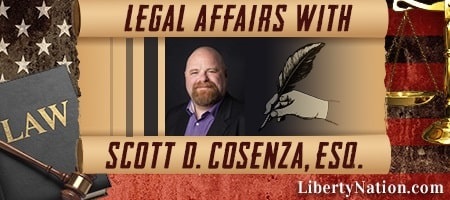Gavin Newsom wants Court conservatives to help him manage the zombie camps.
Why do so many cities resemble dystopian visions of drugged-out homeless camps? It is in no small part due to court-imposed prohibitions on how the dispossessed are treated. On Friday, January 12, the Supreme Court agreed to hear a case that may once again allow cities to clear displaced people from public property. Some significant support for the case against the homeless comes from surprising sources, including Gavin Newsom, California’s Democrat Governor and a progressive leader.
9th Circus Homeless Mess
 In 2018, a three-judge panel from the 9th Circuit Court of Appeals ruled against Boise, Idaho’s enforcement of anti-homeless laws. The city had criminalized homelessness via ordinances prohibiting camping and disorderly conduct, including arresting those denied shelter in city-sponsored facilities. Police testified the laws were “enforced against homeless individuals who take even the most rudimentary precautions to protect themselves from the elements.”
In 2018, a three-judge panel from the 9th Circuit Court of Appeals ruled against Boise, Idaho’s enforcement of anti-homeless laws. The city had criminalized homelessness via ordinances prohibiting camping and disorderly conduct, including arresting those denied shelter in city-sponsored facilities. Police testified the laws were “enforced against homeless individuals who take even the most rudimentary precautions to protect themselves from the elements.”
The judges ruled the Eighth Amendment’s prohibition on cruel and unusual punishment bars a city from prosecuting people criminally for sleeping outside on public property when those people have no home or other shelter to go to. Boise appealed, but the US Supreme Court did not take the case. Since then, Martin v. Boise’s prohibition on arresting someone with nowhere to go metastasized into today’s nightmare. How?
“The practical result is that the fate of any given effort to manage homelessness turns not on the wisdom of the project but on an assessment of an application for a temporary restraining order […] whether ‘enough’ has been done to aid the individuals in an encampment, relative to how unsafe or unhealthy or dangerous a particular encampment may be to those living in it and to the surrounding community.”
Those aren’t the words of a conservative judge or politician but of California’s own progressive leader, Governor Newsom. He commissioned a friend of the court brief to argue the Supreme Court should allow laws prohibiting camping. Newsom argues lower court rulings have stretched the Boise decision beyond intention and now reason. “Our government officials are trapped, at risk of suit for taking action, but also accountable for the consequences of inaction.” He sounds positively conservative. That may be because he’s arguing to conservative justices. They are more likely to give a sympathetic ear to claims that are a more technical way of arguing the Constitution is not a suicide pact.
Cruel and Unusual for Whom?
Justices will settle the question: “Does the enforcement of generally applicable laws regulating camping on public property constitute ‘cruel and unusual punishment’ prohibited by the Eighth Amendment?” The case has attracted a deluge of interest from city and state governments and public interest groups who have filed briefs. The dominant trend of their arguments tracks with Newsom’s: While the Constitution may require some camping be allowed, it certainly can’t require camping to be allowed anywhere at any time.

